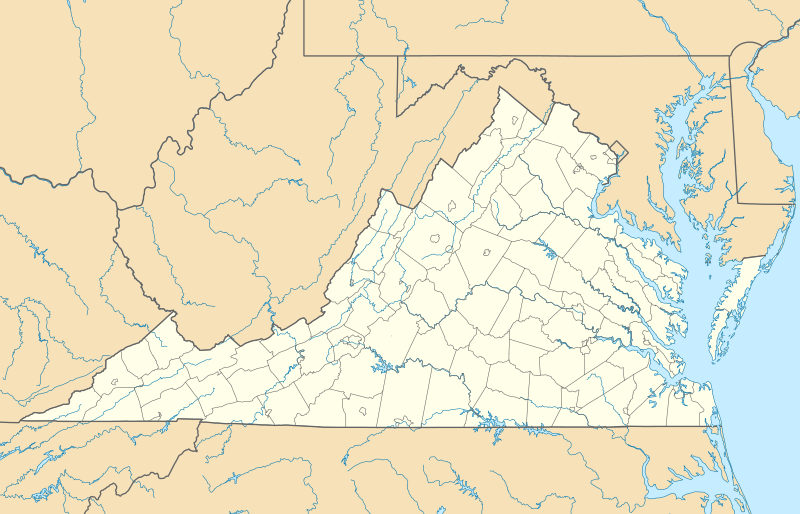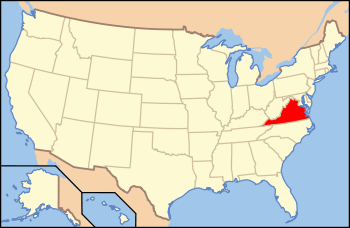Evelynton
Evelynton is a historic home near Charles City, Charles City County, in the U.S. state of Virginia. It was built in 1937, and is a two-story, seven bay, brick dwelling in the Colonial Revival style. It has a gable roof with dormers, and flanking dependencies connected to the main house by hyphens. Also on the property is a contributing frame servants' quarters. It was designed and built under the supervision of the prominent architect W. Duncan Lee (1884–1952).[3]
Evelynton | |
 Evelynton, January 2013 | |
  | |
| Location | VA 5 E of VA 609, Charles City, Virginia |
|---|---|
| Coordinates | 37°19′48″N 77°09′16″W |
| Area | 48 acres (19 ha) |
| Built | 1937 |
| Architect | Lee, W. Duncan |
| Architectural style | Colonial Revival |
| NRHP reference No. | 89000486[1] |
| VLR No. | 018-0064 |
| Significant dates | |
| Added to NRHP | August 17, 1989 |
| Designated VLR | June 21, 1988[2] |
It was added to the National Register of Historic Places in 1989.[1]
History
Originally part of William Byrd II's expansive Westover Plantation and named for Byrd's daughter, Evelyn, Evelynton has been home to the Ruffin family since 1847.
The family patriarch, Edmund Ruffin, is often credited with firing the first shot of the Civil War at Fort Sumter. His earlier agricultural contributions, from scientific soil testing to the publication of The Farmer's Register helped rescue l9th-century Virginia from a declining agricultural economy, and earned him the title "father of American agronomy."
Evelynton was the site of fierce Civil War skirmishes in 1862, when General George McClellan waged his destructive Peninsula Campaign; J.E.B. Stuart, Stonewall Jackson and John Pelham led the Southern offensive in the Battle of Evelynton Heights.
The original house and out-buildings were burned during that conflict, and the current residence was erected two generations later by Edmund Ruffin's great grandson, John Augustine Ruffin, Jr. and his wife Mary Ball Saunders.
Architect W. Duncan Lee, who completed a restoration of Carters Grove in Williamsburg, designed the Georgian Revival manor house in 1937. It is listed on the National Register of Historic Places.
Today, the 2,500-acre farm is still family owned and operated.[4]
References
- "National Register Information System". National Register of Historic Places. National Park Service. July 9, 2010.
- "Virginia Landmarks Register". Virginia Department of Historic Resources. Archived from the original on 21 September 2013. Retrieved 5 June 2013.
- -Nancy Carter Crump (August 1988). "National Register of Historic Places Inventory/Nomination: Evelynton" (PDF). and Accompanying photo
- http://www.jamesriverplantations.org/Evelynton.html

